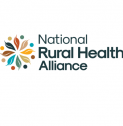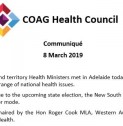Territory Kidney Care: a clinical decision support system to facilitate integrated care for people with CKD in the NT
- Overview
- Access and Participation
- Project updates
- Funders and collaborators
- Resources
- Latest news
- Publications
Background:
Territory Kidney Care (TKC) is an integrated clinical decision support system that links primary health data from government and non-government services with hospital data for people with chronic disease that put them at risk of developing kidney disease. TKC has been developed in partnership with the Northern Territory Health and the Aboriginal Community Controlled Health Services (ACCHS) sector. TKC undertook an iterative and incremental design process in collaboration with stakeholder health services and clinicians to ensure the system was built 'fit for purpose'.
In the NT, where the population is highly mobile and often access multiple primary and hospital-based services, there are significant challenges to the provision of optimal integrated care. Due to unconnected and siloed healthcare systems, patients frequently have multiple electronic and paper health records across government and non-government services. This increases the complexity and disjointed nature of care, making it difficult for treating clinicians to obtain a complete and accurate picture of a patient's health journey.
Aim:
Summary:
The NT has the highest rates of chronic conditions in Australia and many people live with two or more chronic conditions. People with chronic conditions are more likely to visit health services and have unplanned hospitalisations. This has a financial impact on patients and s governments. Some of the conditions which can cause kidney disease include diabetes, hypertension, obesity, smoking, heart disease and long-term use of some medication. Unfortunately, most people don’t know if they have kidney disease until it is too late. Chronic Kidney Disease (CKD) is a common and serious health problem in Australia. CKD refers to all kidney conditions where a person has kidney damage and/or reduced kidney function. People with CKD suffer poor health outcomes, reduced life expectancy and reduced quality of life. First Nations Australians experience high levels of kidney disease. Critically many people do not know they have CKD, as up to 90% of kidney function can be lost before symptoms are evident.
Kidney disease has a huge impact on people’s health and wellbeing, relationships, as well their finances. Demand for dialysis treatment and the associated expenditure has increased relentlessly over recent decades in the NT and has surpassed all projections. Sustainable measures to address the high rates of chronic kidney disease and provide earlier intervention to delay or avoid the need for dialysis are urgently needed. The lack of data sharing between primary and tertiary services and government and non-government clinics presents a clinical safety risk for patients who attend multiple health services. The lack of integrated clinical information systems limits the coordination of care and the potential success of intervention measures.
TKC is an integrated clinical information system that provides a means to facilitate earlier and targeted patient care without increasing the resource burden on staff.
TKC, adds an immense contribution to virtual healthcare, telehealth and integrated care and will be core to our ability to sustain effective care for people with complex chronic conditions as we adopt virtual models of care. TKC has the potential to transform care delivery and provide consumer-centric, affordable, accessible and high-quality health care.
Our research has found:
Our work with tertiary and primary health services has found that a substantial proportion of people living with or at risk of chronic conditions are not regularly screened and that a number of people with advanced CKD do not have a corresponding diagnosis recorded in their electronic health record and are therefore not receiving evidence-based care.
However, there is strong evidence which suggests that patients who have intense monitoring, follow-up and treatment according to evidence-based protocols have better health outcomes, reduced health service utilisation and make timely and more informed choices about treatment options. Additionally, there is extensive evidence on strategies to facilitate the earlier identification of people with chronic conditions, including the monitoring, surveillance and the regular screening of people with hypertension, cardiovascular disease and diabetes. Importantly, the provision of care to people by people who know the patient and their families the best - the community health service - is key to increasing and maintaining patient engagement, and this requires support for GPs in the management of people with complex conditions.
In 2020 TKC won the NT Digital Excellence Award, Community Benefit Category.
The Commonwealth Government’s National Digital Health Strategy 2023-2028 (under the Australian Digital Health Agency) has four outcomes including being digitally enabled, person-centric, inclusive and data driven. TKC was highlighted in the strategy as it aligns with all four outcomes but was mentioned specifically in its capacity to connect seamlessly with existing information systems to support evidence-based clinical decision making and deliver high quality integrated health information.
The Northern Territory Government’s Digital Territory Action Plan 2023-2024 highlighted TKC as “an innovative clinical information system” enhancing customer experience and harnessing innovative technology and services.
Chief Investigator:
Associate Professor Gillian Gorham
Project contact:
Paul Kamler - TKC - Informatics Clinical Nurse Consultant
Associate Professor Asanga Abeyaratne - TKC -Clinical Lead Father Frank Flynn Fellow
Project start date:
2016 - ongoing
Access
The TKC system is hosted by NT Health and security and privacy are governed by NTG sits within NT Health is only available to clinical staff in NTG and partnering health services who are providing clinical care. Approved users must have an NTG LAN ID to be able to access the system via the access NTG (external portal) or at https://territorykidneycare.nt.gov.au within the NTG network.
To request access to TKC, please contact Paul Kamler Health Informatic CNC and TKC Administrator paul.kamler@nt.gov.au.
Non-government clinicians are required to complete TKC New User form.
Participation
Participation in TKC for non-government health services is voluntary. Participation is formalised through execution of the TKC Data Participation Agreement, which outlines the working relationship between the partners and the data security, data management, access and privacy protocols. The following links are provided for your information. The Data Participation Agreement acknowledges the common goal of partners to improve the health and wellbeing of people in the Northern Territory. TKC partners actively support each other in the delivery of culturally secure care. An agreed approach to safeguard the rights, views and values of health service clients underpins TKC.
By participating, each organisation demonstrates its commitment to preventive, early intervention and evidence-based practice in the treatment, management and planning of chronic disease care.
TKC includes data from 6 NT public hospitals, 56 government primary health services, 11 ACCHS and one private practice in the NT. TKC has been implemented in the majority of Aboriginal Community Controlled Health Services in the NT. The TKC project team continue to work with primary health services including private GP practices, regarding the benefits of linking patient data for improved patient care.
- Health Service Implementation Plan template
- Territory Kidney Care FAQs
- Territory Kidney Care Health Service information sheet
For more information on how your health service can participate in TKC, or to arrange a presentation / information session for key stakeholders at your health service please contact Paul Kamler.
Lastest update:
Online updates:
Pdf updates:
-
Territory Kidney Care | Newsletter June 2024
- 2 MB
-
Territory Kidney Care - 2023 Highlights
- 2.94 MB
-
Territory Kidney Care | Newsletter June 2022
- 726 kB
-
Territory Kidney Care Progress Report July 2021 – February 2022
- 1.37 MB
-
Territory Kidney Care | Newsletter December 2021
- 430 kB
-
Territory Kidney Care | Progress Report January - June 2021
- 469 kB
-
Territory Kidney Care | Newsletter July 2021
- 1.43 MB
-
Territory Kidney Care Newsletter March 2021
- 244 kB
-
Territory Kidney Care | Progress Report October 2020 - February 2021
- 1.55 MB
-
Territory Kidney Care | Progress Report April - September 2020
- 604 kB
-
Territory Kidney Care | Progress Report - February 2020
- 292 kB
-
Territory Kidney Care | Newsletter June 2019
- 357 kB
-
Territory Kidney Care | Progress Report - April 2019
- 995 kB
-
Territory Kidney Care | Newsletter December 2018
- 476 kB
-
Territory Kidney Care | Progress Report November 2018
- 1 MB
-
Project newsletter | August 2018
- 360 kB
-
Project newsletter | June 2018
- 412 kB
-
Project newsletter | February 2018
- 340 kB
-
Project newsletter | December 2017
- 437 kB
-
Project newsletter | October 2017
- 535 kB
-
Project newsletter | August 2017
- 187 kB
-
Project newsletter | June 2017
- 186 kB
Funders:
- Philanthropic
Collaborators:
- AMSANT
- Ampilatwatja Health Centre
- Central Australian Aboriginal Congress
- Katherine West Health Board
- Laynhapuy Homelands Aboriginal Corporation
- Malal'a Health Service Aboriginal Corporation
- Miwatj Health Aboriginal Corporation
- NT Cardiac Services
- NT Health
- Pandanus Medical NT GP Practice
- Pintupi Homelands Health Service
- Purple House
- Red Lily
- Sunrise Health Service
- Urapuntja Health Service
- Wurli-Wurlinjang Aboriginal Health Service
- Chen, W., Howard, K., Gorham, G., Abeyaratne, A., Zhao, Y., Adegboye, O., Kangaharan, N., Taylor, S., Maple-Brown, L., Heard, S., Talukder, M. R., Baghbanian, A., Majoni, S. W., Cass, A., & Territory Kidney Care Steering Committee. (2025). Cost-Effectiveness of Clinical Decision Support to Improve CKD Outcomes Among First Nations Australians. Kidney International Reports, 10(2), 549-564. https://doi.org/10.1016/j.ekir.2024.10.028
- Gorham, G., Abeyaratne, A., Heard, S., Moore, L., George, P., Kamler, P., Majoni, S. W., Chen, W., Balasubramanya, B., Talukder, M. R., Pascoe, S., Whitehead, A., Sajiv, C., Maple-Brown, L., Kangaharan, N., & Cass, A. (2024). Developing an integrated clinical decision support system for the early identification and management of kidney disease—building cross-sectoral partnerships. BMC Medical Informatics and Decision Making, 24(1), 69. https://doi.org/10.1186/s12911-024-02471-w
- Chen, W., Howard, K., Gorham, G., Abeyaratne, A., Zhao, Y., Adegboye, O., Kangaharan, N., Talukder, M. R., Taylor, S., Cass, A., & Territory Kidney Care Steering Committee. (2024). Costs and healthcare use of patients with chronic kidney disease in the Northern Territory, Australia. BMC Health Services Research, 24(1),791.https://doi.org/10.1186/s12913-024-11258-8
- Chen, W., Abeyaratne, A., Gorham, G., George, P., Karepalli, V., Tran, D., Brock, C., & Cass, A. (2022). Development and validation of algorithms to identify patients with chronic kidney disease and related chronic diseases across the Northern Territory, Australia. BMC Nephrol, 23(1), 320. https://doi.org/10.1186/s12882-022-02947-9
- Chen, W., O'Bryan, C. M., Gorham, G., Howard, K., Balasubramanya, B., Coffey, P., Abeyaratne, A., & Cass, A. (2022). Barriers and enablers to implementing and using clinical decision support systems for chronic diseases: a qualitative systematic review and meta-aggregation. Implementation Science Communications, 3(1), 81. https://doi.org/10.1186/s43058-022-00326-x
- Chen, W., Howard, K., Gorham, G., O'Bryan, C. M., Coffey, P., Balasubramanya, B., Abeyaratne, A., & Cass, A. (2022). Design, effectiveness, and economic outcomes of contemporary chronic disease clinical decision support systems: a systematic review and meta-analysis. Journal of the American Medical Informatics Association, 29(10), 1757-1772. https://doi.org/10.1093/jamia/ocac110



.JPG&w=123&h=126)











